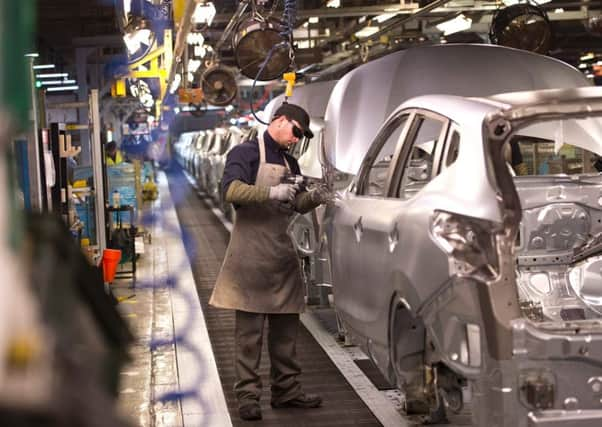Leader comment: Economic good news may be a flash in the pan


In the pre-vote campaigning the then Chancellor threatened to raise tax rates and cut spending on health, education and pensions in an emergency Budget he would be forced to call shortly after a vote to leave the EU. That simply has not happened when he said it would.
Now the latest figures on economic growth appear to give the lie to those dire predictions. And there was further economic good news from Nissan which announced it would continue with car manufacture in Sunderland. But closer examination of the figures will cut short any desire to celebrate.
Advertisement
Hide AdAdvertisement
Hide AdAccording to the latest figures from the Office of National Statistics, economic growth in the three months after the vote confounded expectations, growing by 0.5 per cent. That was down on previous growth but higher than analysts had predicted. But the key words from the ONS were that there was little evidence of a profound effect on the economy in the “immediate aftermath”. The long-term picture is far from rosy. The recent rise was really all down to the services sector and largely fuelled by consumer spending which continues due to low unemployment rates.
In the other sectors, construction fell and manufacturing was largely flat. The reality of life following the Brexit vote is that the pound has lost one fifth of its value and that makes the country attractive to overseas visitors and it should also make exports more attractive to overseas buyers, and yet manufacturing remains flat.
What was toasted as the bright spot of manufacturing good news was Nissan’s decision because it had raised fears about continuing in this country after Brexit because an awful lot of the cars it makes go to Europe. Any tariff imposed on cars from the UK would have been a real blow to Nissan in the highly competitive automotive industry.
The bad news was it was government intervention that changed Nissan’s mind by giving assurances around that change. On the plus side 7,000 jobs have been secured, but as yet we do not know the cost of that.
And the government is set to go ahead with massive construction programmes to help boost the economy, and has said it is prepared to borrow to do so. In order to get more money to spend, or to pay back interest on loans, governments have generally two levers to pull, they can raise taxes or cut spending or more usually combine the two.
Given the government’s commitments and stated intentions, it would appear that the warnings from Osborne were simply premature. And that is where we are now, before trade is truly hit by leaving Britain’s biggest trading partner.
Of course Britain will not be paying its contribution to the EU, but it remains to be seen how much of that is left to make its way to the NHS.